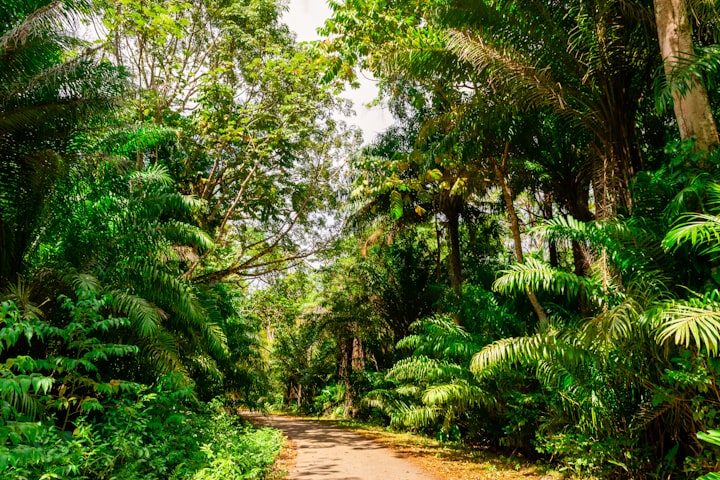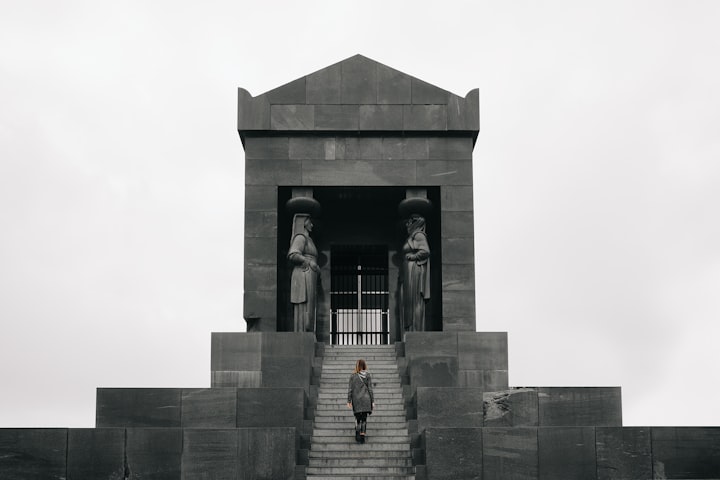After the Apocalypse (5)
The Indonesian Archipelago: 1885

The Crone, their grandmother- who was not their grandmother- was a supportive ally for Cahya. She had been strict and harsh with them at first, especially with Cahya, the girl and older, but she’d begun to soften over the past two months and was becoming particularly prone to spoiling Gemi, for whom she was starting to become aware of a genuine sympathetic affection. Business had improved with the much healthier crops after last year’s world-wide agricultural disaster, providing some essence of disposable income for the farmers and foragers who provided the lifeblood of the village community. The Crone had even been able to add new products to her shelves after this latest trip to the harbor town.
When she got there on her travel day, she was pleased to see that not only was the monthly cargo/mail packet in the harbor but there was also an enormous (at least to her) steel ship. It was the first true steamship she’d ever seen, with its funnel spewing black coal-fired smoke into the tradewind bottled up within the confines of the steep hills around the harbor. It was a trade ship from far off Macao, full of never-before-seen treasures and trinkets and cheap costume jewelry all the way from Portugal. The steamship provided a new economy of scale never before seen on Flores in 1885. She’d been able to purchase an astonishing supply of stock for an astonishingly small investment. The Portuguese sailors had taken kindly to her as well, and some of the young, pretty European men even flirted with her to the point of a startling reminder of her long dormant libido.
Nevertheless, and in spite of her inevitable romantic frustration, the Crone was left in such a positive state of mind from her expedition that when Cahya shyly asked her for the ugly old ora icon after the Crone finished paying off the three porters she’d hired to help her get her product to the market, she’d merely laughed and picked up the little wooden lizard effigy, handing it to Cahya without hesitation. No one told the old lady of the children’s battle earlier in the day and she was unaware of the new relevance of the old, shelf-worn thing. “Thank you for taking this away, Little Burden, though I’d prefer it to leave the household altogether so I would never have to look at it again!”
“I can grant you that wish, mam. I owe a debt of thanks to the boy at the bird stall and I think he will appreciate this trinket. He seems to have a strange liking for the buaya darat from Komodo.” Cahya’s almost leering grin left the Crone off guard, and she briefly considered taking back the icon before remembering her own feelings around the Portuguese boys earlier. Cahya might just be starting to develop some interest in boys beyond making them victims of her pent up anger. The Crone said nothing as she watched the young girl put the ora away among her meagre bag of personal possessions. In any case, the old merchant liked the bird-boy, even though he looked vaguely pale and Chinese to her ancient eyes.
Cahya gave Wein the little wooden ora. He was more than surprised by the unlooked-for gift. The latent friendship between the two merchant children was fostered and flourished in their growing mutual respect. For his part, Wein’s motivation in chasing Susswan so passionately and tenaciously continued to puzzle him just as much as it puzzled the other children. He’d begun to lose the sting of watching Susswan’s brother kill his parakeet, which had after all been an unintended, accidental outcome of much older arguments over a prime toiletry spot at the riverside. He liked Cahya well enough, but he didn’t think he had a crush on her; in fact, he thought she was just a little bit ugly and her spindly limbs gave her an unbecoming spidery essence which left him admiring her unexpected physical strength, but nothing more.
He thought maybe the mercantile link, the protection of salable property, may have motivated him in the pursuit, but now he was a little uncomfortable with that notion too. He had frightened Susswan, the other children and himself with his zeal, his apparent bloodlust. For the moment, and with the exception of Cahya, he found himself even more apart from the village gang. If he was a pariah though, Wein was a respected and feared pariah. His caregiver Aunt had bandaged and tended his forehead, but he would always carry a scar of the chase, a life-long badge of honor.
Some weeks later, and after numerous private trips to the lost vanilla grove in the hills, Gemi’s guilt finally overwhelmed his greed. He explained to Cahya the real reason his bird-catching expeditions were proving so futile lately. She laughed at the rueful expression on his tiny face. “Dunderhead, you can get permanent skin damage from those vines if you don’t know how to properly pluck the fruit!” She grabbed his forearm and examined its underside. “Look here,” she pointed at a parallel pair of skin lesions, “the sap has got you. Isn’t it itchy?”
Gemi looked shy. “Is that why I’m so itchy there? I thought it was mosquitoes getting me at night.”
Cahya laughed once more. “I think the Crone might have some lotion for that. If not, I know for sure that Susswan’s mother has some she will let you use if you ask her while flashing your big eyes and those ridiculous eyelashes at her, she’s a fool for all boys your size!” Gemi’s mouth formed a silent ‘Oh’, marveling at this newfound alliance with the other village children, and by proxy their mothers.
“Show me your vanilla grove,” Cahya ordered her little brother- who was not her little brother. It was a rare sparkling day, the high clear blue of the sky unimpeded by the usual fug of humidity. All day felt almost as fresh as dawn so that the climb uphill to the hidden grove was easier than usual. Still, the jungle was curiously quiet for such a brilliant day. For a brief while Gemi and Cahya pretended to be the Orang Utan swinging through the low branches, but the quiet oppressed them, or at least subdued them. They soon fell silent as they trudged the old deer path upward to an open blue patch where the grove sat.
The grove had been an experimental station planted by a failed Dutch farmer a decade ago, so the vanilla vines were suspended from a variety of different and sometimes odd types of trees strewn about a clearing in the jungle. The early difficulties in pollinating vanilla flowers had defeated the European family so that they had long ago moved onto coffee farming on Java. The village had forgotten the vanilla grove as well. It hadn’t quite flourished but somehow it had survived and Gemi had reaped some reward from the long-gone farmers’ efforts. However, he was not the only one who’d profited.
Please continue reading this story in "After the Apocalypse" (6)
https://vocal.media/fiction/after-the-apocalypse-6
About the Creator
Roy Stevens
Just one bad apple can spoil a beautiful basket. The toxins seep throughout and...






Comments (1)
Nice concept 👍👍🥰